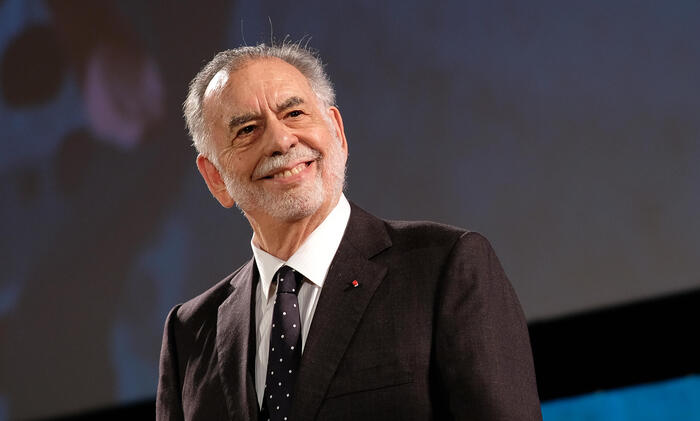In each of these wars - Afghanistan, Iraq, Libya - the possibility of reaching a negotiated solution remained outside the conflict.
In Afghanistan, the Taliban were aware of the seriousness of a US attack after 9/11 and made it clear that they would be willing to hand over Osama Bin Laden and the Al Qaeda network to a third country;
Since in 1998 they had already suffered a limited US attack against various targets (…), they were familiar with the strength of the US military.
But his request for agreement was rejected.
In 1990, Saddam Hussein's government realized that he had made a mistake by invading Kuwait.
He wanted to reach an agreement to leave the country without total humiliation.
Attempts to negotiate a withdrawal were greeted with disdain by the US,
which in 1991 subjected Iraq to an intense bombing campaign.
Hence, Saddam Hussein was more than willing to make concessions to the US after 9/11, allowing an increasing number of UN inspections - whose inspectors did not find weapons of mass destruction - and offering all kinds of means so that the Americans proved that Iraq had no ill intentions towards them.
Once again, Washington ignored Baghdad's pleas and went ahead with its military campaign, dubbed Shock and Awe.
In Libya, the government was eager to accept the peace plan drawn up by the African Union, whose mission was initially unable to travel to Tripoli due to NATO bombing;
later, when (...) Gaddafi accepted his conditions, the rebels,
With the advantage that their status as NATO allies gave them, they refused to sign the agreement.
The Americans were simply not interested in a peace agreement or even pre-emptive surrender.
When America wants war, it gets it.
There is something distinctly mafia about the way the US has historically wielded its power, a fact that goes back to the time of the genocide of the indigenous peoples of North America, who tried to negotiate with the settlers, but instead had to confront to Hotchkiss Canyon.
When Shawnee chief Tecumseh tried to negotiate with Indiana Governor William Henry Harrison in 1811, the federal government used military force to pursue him into Canada;
for his part, Harrison would become president of the United States, obtaining a reward for seizing those lands.
This attitude has its roots in a culture of colonial occupation that expanded the US territory, initially established on the Atlantic coast, towards the lands of Amerindian societies,
also appropriating a third of Mexico and, later, the French and Russian territories of the Gulf Coast and California.
Once the continental United States was consolidated, always by force of arms, armies were formed to seize distant archipelagos and islands (Hawaii, Guam, Puerto Rico, the Philippines), as well as to establish their domination of the entire American hemisphere through the Monroe Doctrine of 1823. In 1898, in the American war against the Philippines, General Jacob Smith ordered his troops to “kill everyone over the age of 10” and leave behind an “inhospitable wasteland”.
Half a century later, in Vietnam, an American helicopter unit painted the slogan "Death is our business and business is good" on a wall of its barracks.
The landscape had to be pacified, or destroyed.
The underlying spirit was captured in the words of US President Lyndon B. Johnson: “It is stupid to talk about how many years we will spend in the jungles of Vietnam when we could pave the whole country and paint parking lines on it and still be home for Christmas.” .
The idea that America - the city on the hill (a biblical expression used by John Winthrop in 1630 to describe his new country as a "beacon of hope" for the world) - has the right to define America's destiny and to export that attitude to other lands, especially to various parts of Africa and Asia, stems from their history of colonial occupation.
"It's stupid to talk about how many years we'll spend in the jungles of Vietnam when we could pave the whole country and paint parking lines on it, and still be home for Christmas."
The idea that America - the city on the hill (a biblical expression used by John Winthrop in 1630 to describe his new country as a "beacon of hope" for the world) - has the right to define America's destiny and to export that attitude to other lands, especially to various parts of Africa and Asia, stems from their history of colonial occupation.
"It's stupid to talk about how many years we'll spend in the jungles of Vietnam when we could pave the whole country and paint parking lines on it, and still be home for Christmas."
The idea that America - the city on the hill (a biblical expression used by John Winthrop in 1630 to describe his new country as a "beacon of hope" for the world) - has the right to define America's destiny and to export that attitude to other lands, especially to various parts of Africa and Asia, stems from their history of colonial occupation.
World War II devastated most of the advanced industrial countries;
this was certainly the case in Europe, Japan and the USSR.
The US, on the other hand, did not see any of its industrial bases affected.
In this country, war production boosted domestic industry, and the US financial surplus would invest the dollar with a sacred character that all other currencies lacked (...).
The US began to aggressively define the trajectory of its allies in Europe and Japan, in addition to using all means to subordinate the decolonization movement and demonize the USSR through the Cold War system, largely imposed by the Americans.
Coups and military interventions are the defining feature of the Cold War era,
from the US-instigated coup in Iran (1953) to the US military intervention in Iraq (1991).
During those 40 years, US strength was hampered by the presence of the USSR and its allies, as well as the emergence of the Third World as a political actor.
Even so, the US acted with complete disregard for international law, and there was no way to limit its military and diplomatic power or the operation of multinationals based in Europe, Japan and US territory itself.
This typical attitude of a mafia godfather underwent a geometric progression after the disintegration of the USSR, when the US ruling elite realized that they now constituted the only superpower.
The milestones of this new era were the war in Iraq (1991) and the creation of the World Trade Organization (1994): the first, a pure display of military power, and the second, an institution designed to attract the various countries of the world to a trade framework that the US hoped to dominate.
The wars against Afghanistan (2001) and Iraq (2003) took place with little regard for world opinion, let alone the possibility of avoiding war through negotiation.
The United States, as the first among unequals, considered that it did not have to answer to anyone.
That is the characteristic attitude of a mafia godfather.
The godfather's attitude is not irrational.
It is displayed to protect the property, privilege and power of the ruling elites of the US and its closest allies in Europe, Japan and a few other countries.
These elites are aware that their privileges cannot be permanently guaranteed through free competition (...).
From time to time, two types of economic threats arise: the first is the mobilization of workers and peasants in the countries that produce key raw materials, who refuse to accept the imposition of subhuman wages that enable the productive chain to maintain costs low and profits high;
the second occurs when the countries where technological advances are produced threaten the monopoly power of the European, Japanese and American multinationals.
The US either uses violence or supports its use by its authorized representatives (dictators and police chiefs) against workers and peasants who are in revolt, and against the governments they might create to design a different course.
It also encourages trade policies —especially intellectual property rights laws— that prevent other countries from advancing their scientific and technological capabilities.
If there is a movement against its interests, the US uses its control over international institutions to sanction the countries in question or uses violence to discipline them.
That violence and those laws have their roots in the attitude of the Godfather, another way of calling imperialism.
Noam Chomsky
(Philadelphia, 1928) is a linguist, philosopher, political scientist and activist.
Vijay Prashad
(Calcutta, 1967) is a historian and journalist.
This excerpt is a preview of his book
'The Retreat'
, by Captain Swing, which will be published on September 12.
Sign up for the weekly Ideas newsletter
here .
Subscribe to continue reading
read without limits
Keep reading
I'm already a subscriber







